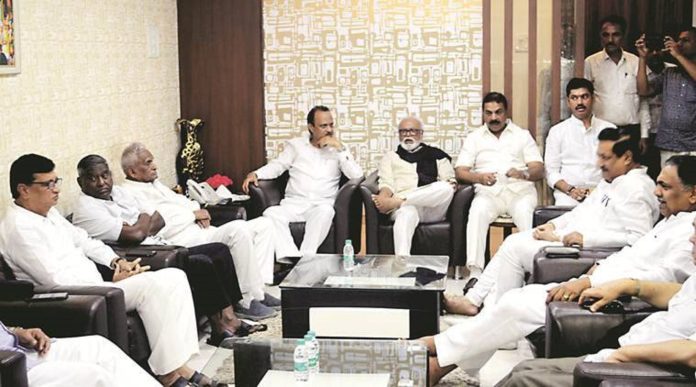- We all know how the Bharatiya Janata Party opposed political parties and are attempting to forge a united front, yet another exercise in presenting a coalition of diverse parties to take on the might of the ruling dispensation at the Centre, but the move has already encountered a challenge. A handful of the well-known regional parties either did not attend or were not invited to the recent opposition parley in Patna, Bihar. Election maths in India is too complicated to be easily understood because local organizations primarily base their operations on a convoluted caste system. Of fact, the Grand Old Party and the BJP are the only two truly national parties. We are aware of how regional parties coexist with the two in the states.

PC: ANI
- Now, Congress may be part of the efforts to present a united opposition front against the BJP. However, Congress is also the principal party in several states who alone can take on the might of the BJP. In addition, regional parties like the depleted NCP in Maharashtra, the Shiv Sena (UBT), the TMC in West Bengal, the JD(U) in Bihar, the SP in Uttar Pradesh, and the Shiv Sena are engaged directly or indirectly in conflict with the Congress. When the political landscape is viewed as a whole, it becomes clear how intricate it is and the difficulties the opposition unity faces. Among the many regional parties, Congress rightfully sees itself as the first among equals, which will only further complicate the already murky political relationships.
- On top of it, the NCP’s split engineered by Ajit Pawar and a bunch of MLAs has further complicated the matter. No wonder, NCP’s national president Sharad Pawar – one of the architects of the unity efforts – hit the road rallying support for his cause. Keep in mind that Maharashtra has 48 Lok Sabha seats, making it the second-most significant state for the results of general elections after UP. Hence, less than a year before the general election of 2024, Pawar’s self-preservation rallies represent the condition that the united opposition forecasts. Without a doubt, Pawar’s contribution to the project is more significant than the numbers NCP could have provided before Sunday’s uprising. His background and connections are crucial for covering the gaps between the non-NDA parties.

PC: PTI
- Note that at the heart of these differences is the positioning of Congress. Even as Ajit Pawar and some of his party colleagues joined the BJP-anchored Maharashtra government, Rahul Gandhi held a poll rally in neighboring Telangana. His messaging was clear. In this situation, where the grand old party sees itself as a significant power in a state’s political arena, Congress will not yield ground to regional parties, BRS. Rahul even claimed that Congress had made sure BRS was excluded from the Patna opposition summit. This encapsulates everything. The political diversity of India offers BJP a definite advantage over the fractured opposition. And the nation’s citizens are aware of these undercurrents and plots. Yet the BJP isn’t grumbling.






